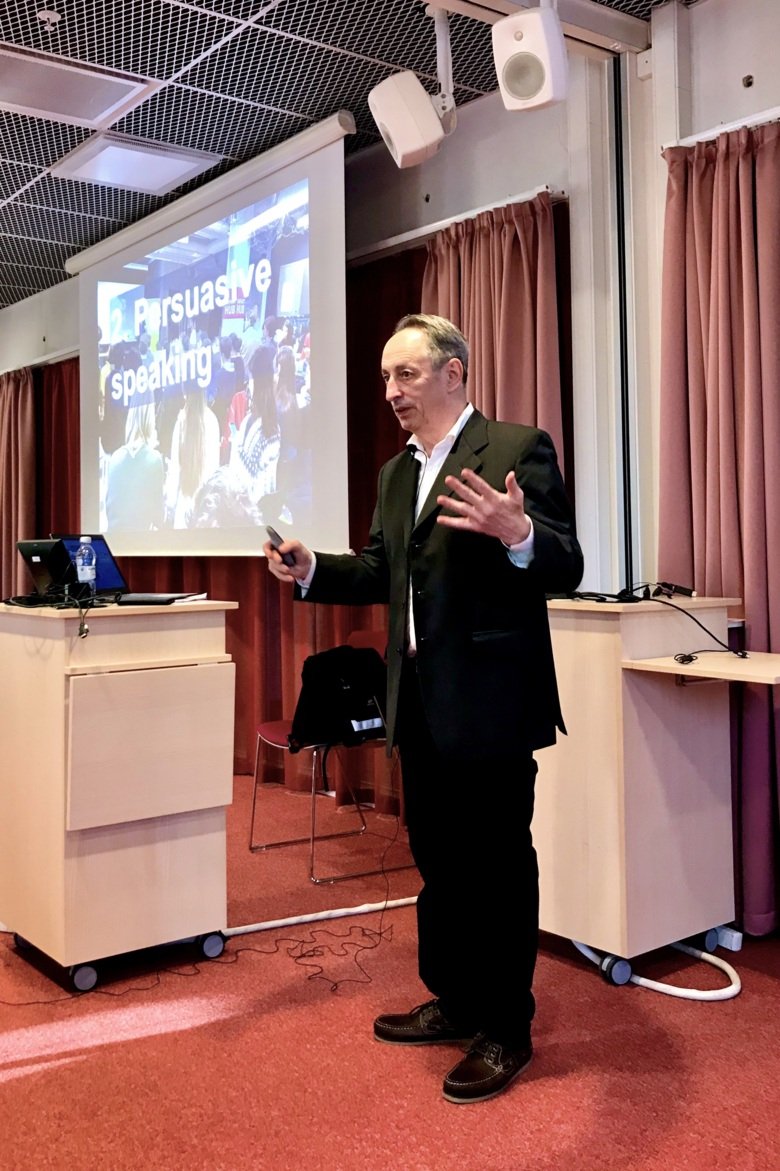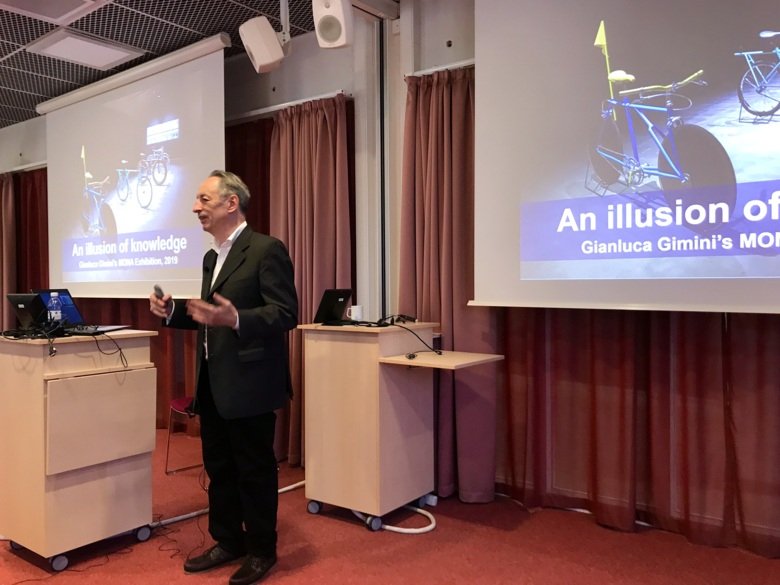KI DevReg Salon on Influencing Skills to Leverage Your Career
Essential influencing skills and some new ideas shared by Speaker Coach Andrew Hennigan from TEDx Stockholm.

"To succeed in any field, you have to have both technical expertise and the ability to influence other people. Without this ability you might have the best ideas but they will not be recognized and you will struggle to persuade other people to listen to your ideas, give you the funding you need, hire you for that dream position, invite you to speak at conferences or anything else." - Andrew Hennigan.
Fortunately it's easier than you think to acquire the right skills! We have put together a quick overview of the 3 basic influencing skills that were covered by Andrew at our recent *Meet an expert - get inspired* Salon on the 30th of September at NEO. If you would like to know more, the full summary of the lecture can be downloaded below.
1. Effective Writing
Combining concepts from journalism and diplomacy:
- Focus on the Idea - Start by clarifying the idea in your mind before you start writing.
- Structure logically - Put the most important part first when it's possible.
- Simplify - Always ask yourself, is this content really needed?
- Focusing on Objectives - You are judged by your results, not how many email wars you win.
- Using Neutral Language - Avoid words that take sides or could provoke anger.
- Slow Down the Message Cycle - Reflect before sending any message and avoid responding when you are angry.
- Create “We” Feeling - Use “we” based language, focus on problems not people and look for solutions, not blame
- De-escalate Tensions - The response to any hostile message should be carefully measured to be clearly less intense.
- Culture Risks - The easiest way to find out what works culturally and avoid misunderstandings is to look carefully at the messages people send and what wording, salutations etc. they use.
2. Persuasive Speaking
Lessons from the TED speaking community & Lean Speaking:
- Be brief - The most important advantage of a short talk is that it helps focus attention on the central idea.
- Have a clear idea - “a well-formed idea worth spreading” is fundamental and makes the rest of the process easier. Test the idea with friends or colleagues to make sure that it makes sense.
- Avoid distractions - Try to memorize your talk, always look towards the audience, not the screen or at a script. Use a clicker.
- And-Then-But-Therefore - You can keep people interested just by connecting together all the ideas like a mathematical proof. If you can't connect the “beats” of your story with “and then” your story will be boring.
- Be Concrete, Tell Stories - Give names, places, dates, numbers, cases, examples, stories. People can process abstractions but they remember concrete facts and stories.
- Evolve Your Content - The first draft always sucks. Explore new ideas, test them and keep the best ideas.
- Budget Your Time - Avoid spending time on unimportant things. Use “bank robber time”. Decide how many minutes you will spend on part of the work and when that time is passed just move on.

3. Strategic Networking
Activity based networking methods:
Know people
- Use the power of connections and tap into a shared community knowledge to succeed. We actually know less than we think and rely on the support of people around us.
- Grow connections without being too goal oriented or instrumental. Maybe you don't find the right person immediately who can help you but a friend who knows someone who knows...
Build trust
- Leave a strong online footprint on Research gate, Linked in, Wikipedia etc.
- Be dependable. Keep promises, big & small.
- Be helpful. It builds social capital and makes you feel good at the same time!
- Trust and strong connections are created by getting involved and through activities where you work together. Volunteer and meet people through a role!
- Build trust passively by being familiar. Exploit the Mere Exposure Effect. Exposure makes your message more credible.
Communicate needs
- Share plans, goals, wants in meetings online or just ask people in the room.
HOST: Karolina Kublickiene, DevReg Doctoral Programme, CLINTEC, Renal Medicine
The DevReg doctoral programme aims to enhance transferrable skills and highlight gender dimension aspects.
To address growing societal and economic challenges, we also believe that the role of the university is not limited to education and research but includes the "third mission". Both researchers and students can act as changemakers, engage with society and link the university’s activities with its socio-economic context to improve health for everybody.
